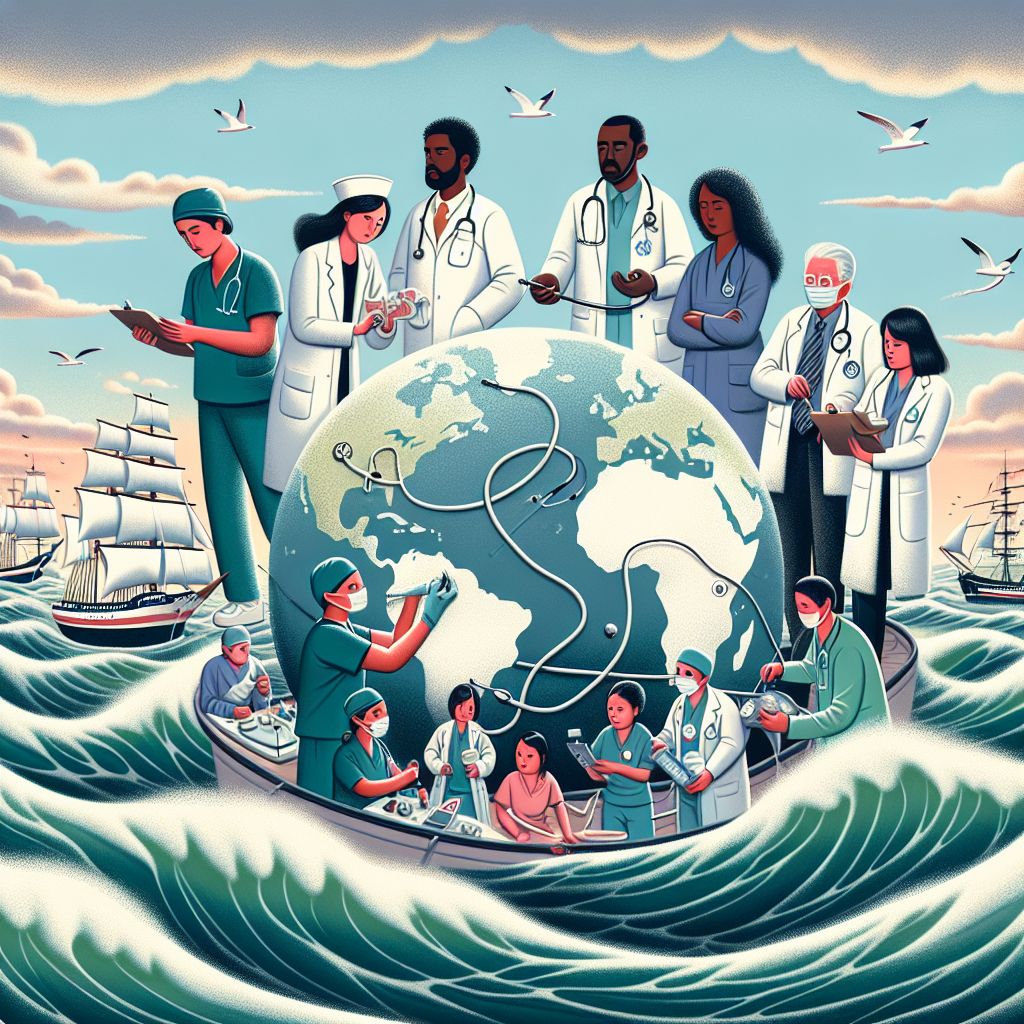Table of Contents
- Introduction: The Vital Role of Developed Nations and Healthcare Professionals in Combating Climate Change
- Role of Developed Nations in Combating Climate Change
- Healthcare Professionals and Climate Change
- Joint Efforts for Greater Impact
- Challenges and Potential Solutions
- The Way Forward
Introduction: The Vital Role of Developed Nations and Healthcare Professionals in Combating Climate Change
The global crisis of climate change is no longer a distant threat but a stark reality that is rapidly redefining the way we live. The role of developed nations and healthcare professionals is crucial in addressing this urgent issue. Our focus here is to examine how these two influential groups can make a significant contribution to climate change mitigation. The reasons behind this are threefold: first, developed nations have the resources and technology to make a major impact; second, healthcare professionals have a unique perspective on the health implications of climate change; and third, the combined efforts of these groups can create a powerful force for global change.
• Developed nations bear a significant responsibility and possess the capability to mitigate climate change.
• Healthcare professionals, with their unique perspective, can influence public opinion and policy towards climate action.
Role of Developed Nations in Combating Climate Change
Developed nations, being the largest contributors to greenhouse gas emissions, bear a significant responsibility to lead the fight against climate change. These nations have the financial resources, technological prowess, and political influence to effect substantial changes in global climate policies. By investing in renewable energy, implementing policies to reduce carbon emissions, and supporting climate-friendly initiatives, developed nations can make a significant contribution to mitigating climate change. Their actions can set a precedent for other nations to follow, thereby accelerating global climate action.
Healthcare Professionals and Climate Change
Healthcare professionals, given their deep understanding of human health, are uniquely positioned to highlight the health implications of climate change. They can educate the public about the links between climate change and increased incidents of diseases, such as respiratory problems, vector-borne diseases, and heat-related illnesses. Furthermore, they can advocate for climate-friendly practices within their own industry, such as reducing the carbon footprint of healthcare facilities and promoting sustainable healthcare systems. Their voices can be powerful tools in influencing public opinion and policy towards climate action.
Joint Efforts for Greater Impact
When developed nations and healthcare professionals join forces, they can exert a powerful influence on global climate action. Developed nations can provide the necessary funding and policy support for climate-friendly healthcare systems. Healthcare professionals, on the other hand, can provide the scientific evidence and health-related arguments to support policy change. Together, they can push for a global shift towards sustainable practices and renewable energy use, thereby making a substantial contribution to climate change mitigation.
Challenges and Potential Solutions
While the potential for developed nations and healthcare professionals to combat climate change is enormous, they also face significant challenges. Developed nations often face political resistance to climate-friendly policies, while healthcare professionals may lack the resources or knowledge to implement sustainable practices. However, these challenges can be overcome through public education, policy advocacy, and the sharing of knowledge and resources. Adopting a collaborative approach can enable these key players to overcome barriers and accelerate global climate action.
The Way Forward
Moving forward, it is imperative that developed nations and healthcare professionals continue to play a proactive role in combating climate change. This involves not only implementing sustainable practices and policies but also advocating for global climate action. By recognizing and leveraging their unique strengths, these groups can contribute significantly to climate change mitigation. Their actions today will determine the health of our planet and its inhabitants for generations to come.
Indigenous communities are particularly adept at utilizing traditional knowledge and sustainable practices to manage natural resources. This, in combination with modern scientific approaches, can greatly enhance climate change mitigation efforts. For instance, the indigenous peoples of the Amazon have demonstrated remarkable resilience and adaptability in the face of climate change, using centuries-old wisdom to protect and preserve the rainforest. Their stewardship of the land not only safeguards biodiversity but also plays a crucial role in sequestering carbon, thus helping to regulate the global climate.
Similarly, farmers and agricultural communities around the world can make significant contributions to climate change mitigation through the adoption of sustainable farming practices. These practices, including organic farming, agroforestry, and permaculture, can help to reduce greenhouse gas emissions, conserve water, improve soil health, and enhance biodiversity. Moreover, such practices can increase farmers’ resilience to climate change by making their farms more resistant to extreme weather events and other climate-related risks.
Businesses and corporations also have a major role to play in mitigating climate change. Many companies are now recognizing the importance of sustainable business practices and are taking steps to reduce their carbon footprints. This includes everything from investing in renewable energy and energy-efficient technologies to implementing waste reduction strategies and promoting sustainable supply chains. Such actions not only reduce greenhouse gas emissions but also make good business sense, as they can lead to cost savings, enhanced reputation, and increased customer loyalty.
Finally, governments at all levels – local, national, and international – have a crucial role in steering the world towards a more sustainable and climate-resilient future. This involves implementing robust climate policies, setting ambitious climate targets, and investing in green infrastructure and technologies. Governments also need to educate the public about the importance of climate action and provide incentives for individuals, businesses, and communities to adopt sustainable practices.
In conclusion, addressing climate change requires a collective effort from all sectors of society. Through their actions and decisions, indigenous communities, farmers, businesses, and governments can all play a significant role in mitigating climate change and safeguarding our planet for future generations.
